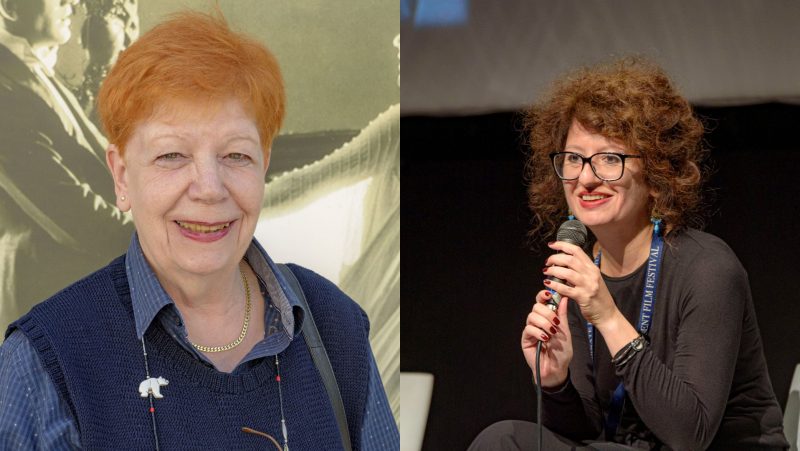Every year, the Pordenone Silent Film Festival assigns an international prize, the Jean Mitry Award, to individuals and institutions who have distinguished themselves in the work of recovering and enhancing film heritage. Established by the Province of Pordenone in 1986, the award has now reached its 37th edition and has been supported since 2017 by the Fondazione Friuli. The award will be delivered by the Fondazione’s vice-president Bruno Malattia on Friday, October 7th at 9PM at the Teatro Verdi in Pordenone during the 41st edition of the festival. This year’s winners are Eva Orbanz and Stella Dagna.
Born in Berlin in 1942, Eva Orbanz started working at the Deutsche Film- und Fernsehakademie Berlin (dffb) in 1966, developing an intensive interest in film production and film history. She trained as a film archivist at the Cinémathèque Royale de Belgique (Bruxelles), and at the British Film Institute (London). From 1973 to 2007, she worked at the Deutsche Kinemathek, Berlin – Museum für Film und Fernsehen in various positions until her appointment as Curator for the Film Department in 1982, and as Senior Curator for Special Projects since 2008.
Over the years, she collaborated on several events, projects, and publications for the Deutsche Kinemathek and the Goethe Institute. She also participated as jury member for international film festivals in Nyon (Switzerland), Chicago (USA) and Kalamata (Greece). Within FIAF (Fédération Internationale des Archives du Film), she was elected to the executive committee, of which she was a member from 1981 to 1989, then secretary general (1989 to 1995), up to President (2003 to 2009).
She has been Honorary Member of FIAF since 2009 and of the Chinese Film Archive in Beijing since 2012.
Stella Dagna is an archivist and restorer. After gaining her degree in philosophy and a PhD in the History of Visual and Performing Arts, she worked for fifteen years at the Cineteca of the National Cinema Museum in Turin, devoting herself in particular to the silent film collection. During her archival career, she co-curated over one hundred preservations and restorations, mostly in the fascinating and sometimes challenging area of Italian silent film production.
Her past projects include the restoration and dissemination of the surviving films of the Maciste series played by Bartolomeo Pagano, the restoration of the different silent versions of Gli ultimi giorni di Pompei, the reconstruction of Camillo Negro’s anthology of neuropathological films (1908-1918), and the project for recovering unidentified fragments in the Turin Museum’s nitrate collection.
Pursuing the professional role of archivist-researcher, Stella Dagna has paid close attention to the politics of collaboration with scholars and cinephiles, promoting transparency in the culture of archives. She has worked with the University of Turin since 2009, and in 2010 she held an internship at the Cineco laboratory in Amsterdam for professional specialization in the audiovisual archives sector, coordinated by the Haghefilm Foundation.
Her teaching and research activity is centred on issues related to archive and restoration ethics, and she is an advocate for the awareness of Italian silent cinema. In recent years, her special focus has been on the question of film archives in the era of digital transition.
Among her publications in this field are Perché restaurare i film? (ETS, 2014) and Ma l’amor mio non muore (Mimesis, 2014).


 Italiano
Italiano
Recent Comments